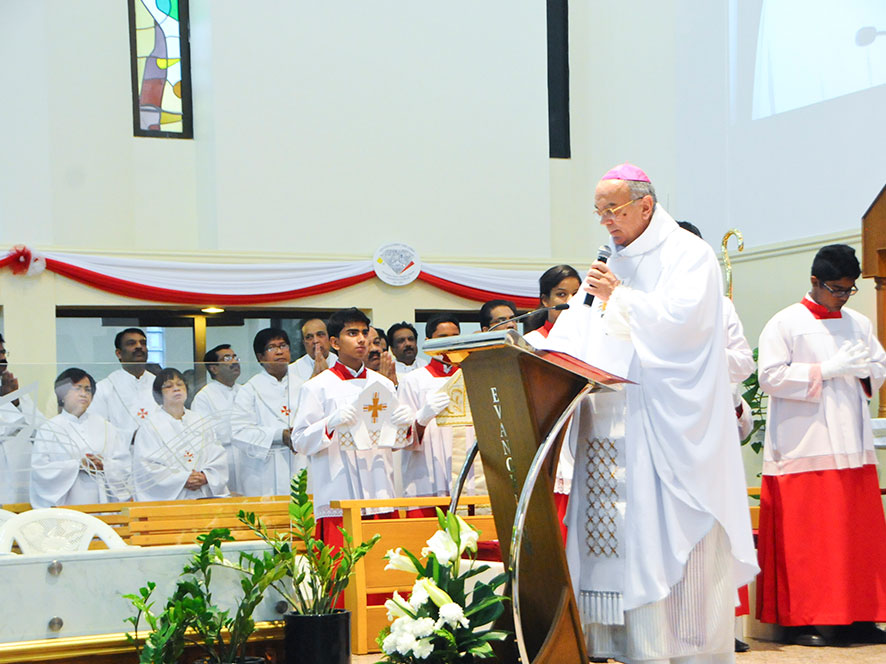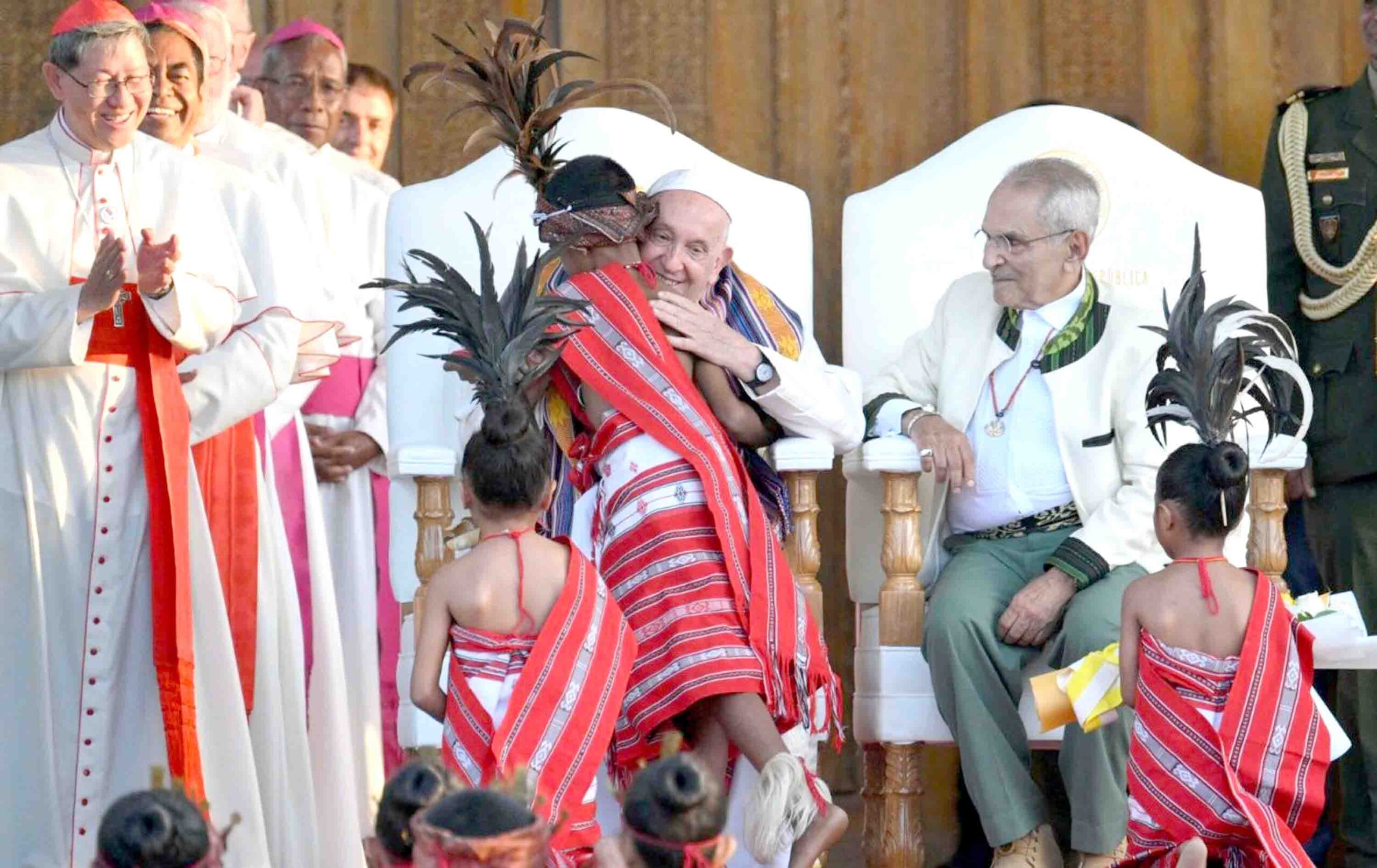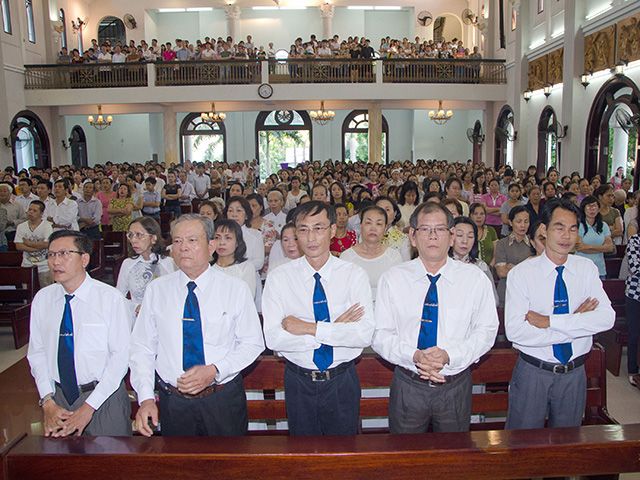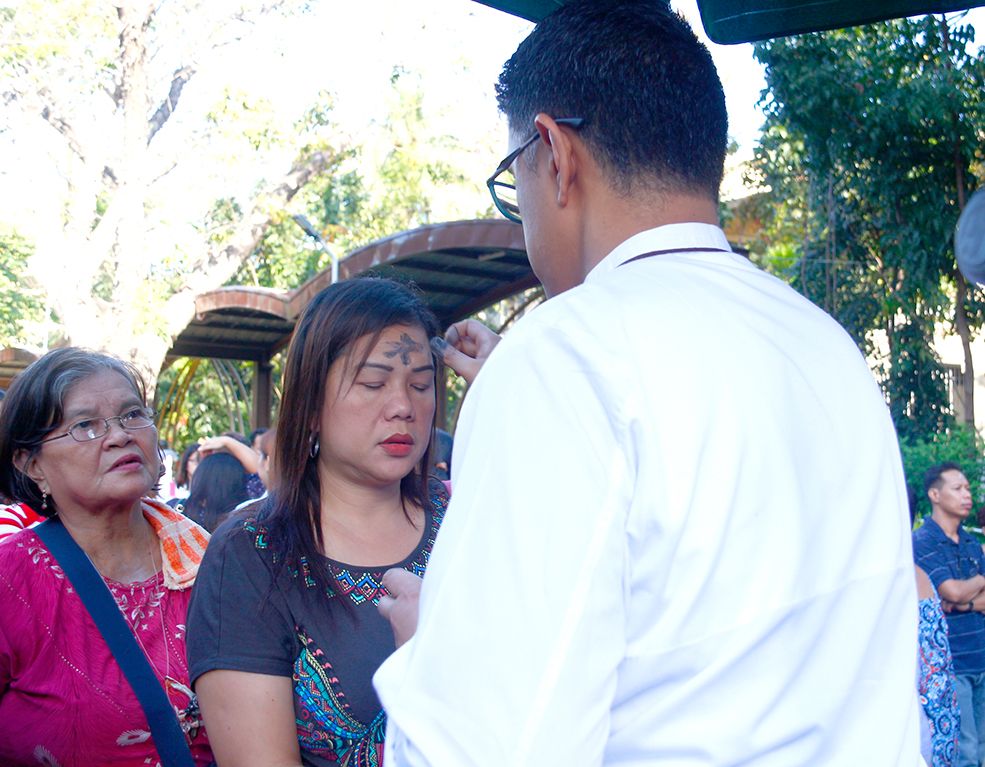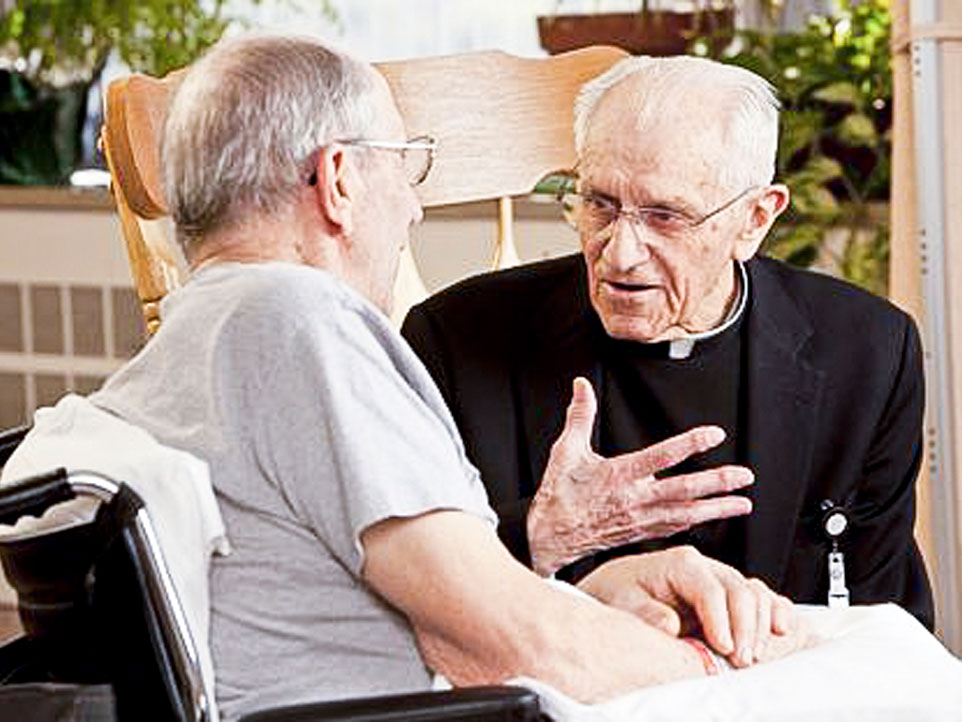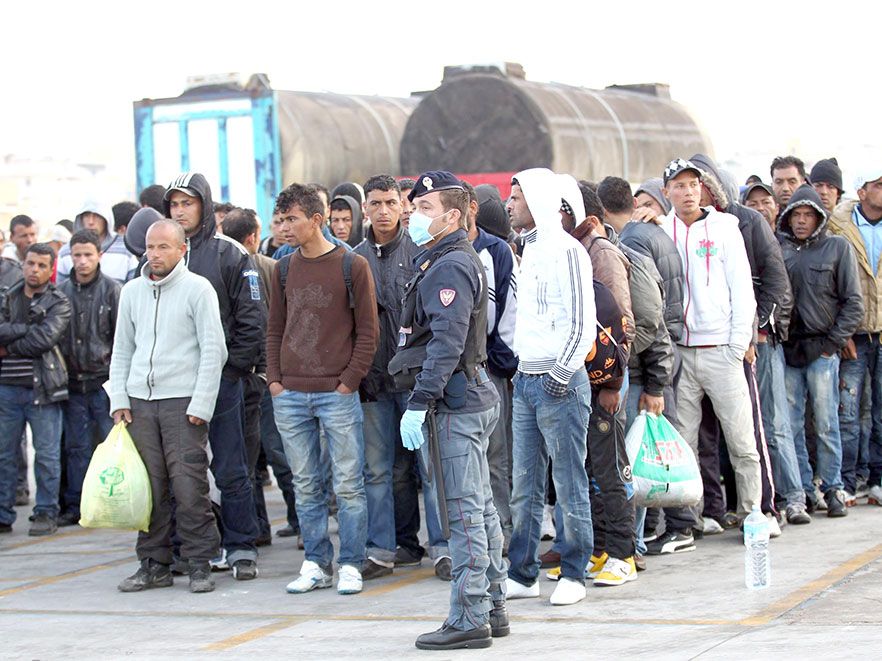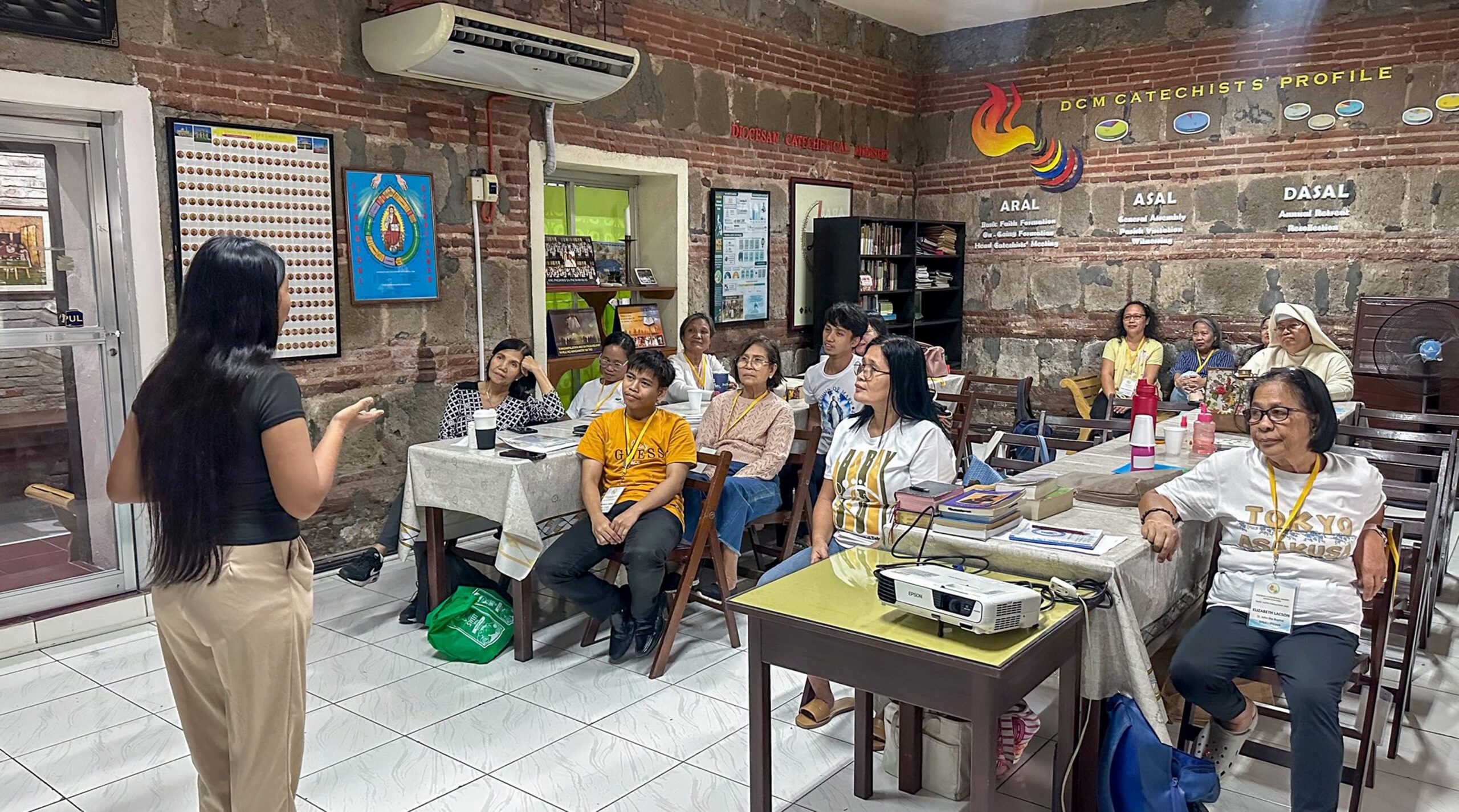Erning and Fidela, a highly-esteemed couple in their community, have been joyfully serving the Church as parish workers since they transferred to the locality 13 years ago. Fidela is a greeter and collector at Mass, while Erning has been helping out with the physical arrangements and security during processions and church events. Their children, all grown up, participate in parish activities as much as they can. During an “audit” for the annual formation and renewal of church volunteers in their diocese, however, a fellow parish worker, albeit without malice, revealed that Erning and Fidela were married before a judge, but not in church. Members of the Parish Pastoral Council, through the parish priest, gently reminded the couple about Church laws governing marriage, and asked them to refrain from serving in a parish ministry for the time being. It also meant not being able to receive Communion, pending their sacramental marriage. Although the couple accepted the judgment, they, including their children, were totally devastated.
Co-habiting Catholic couples like Erning and Fidela, whose zeal to serve and love for the Church are unquestionable, are only some of the unique, previously unheard of, or difficult family situations that Catholic Church leaders from all over the world will examine during this month’s Extraordinary Synod of Bishops on the Family that the Holy Father convoked from October 5 to 19. Around 150 Synod fathers will participate in the meeting to discuss the pastoral challenges of the family in the context of proclaiming the Gospel. Pope Francis appointed three cardinals to serve as presidents during the Synod. They are French Cardinal Andre Vingt-Trois, Brazilian Cardinal Raymundo Damaseceno Assis, and Filipino Cardinal Luis Antonio Tagle.
NOT JUST THE DIVORCED
In the months following the announcement of the Synod by the Pope, some bishops, priests, and lay persons frowned at the scope of the gathering, saying it has been delimited to the case of remarried divorcees or those in irregular marriages. In countries like the Philippines, for example, divorce and same-sex marriage are not allowed or recognized by the law, and are, therefore, not a matter of concern for the local Church.
However, in his flight back to Rome from his apostolic voyage to the Holy Land last May, Pope Francis recognized the vast pastoral problems confronting families, not just the divorced. “I don’t like that to many people, even in the church, priests have said: ‘Ah the Synod for giving Communion to the divorced.’ I have heard it as if the whole thing had been reduced to a case study. No, the matter is more than this, it is wider. Today, everyone knows it, the family is in crisis: it is in a global crisis. Young people don’t want to marry or they don’t marry but live together. Marriage is in crisis and so, too, the family,” the Holy Father said.
For Erning and Fidela, the solution seems to be within reach – to simply be married by a priest. But for many others, the doors of the Church seem to have already been shut, and separation from the Lord in Holy Communion may be lingering or even permanent. Aside from remarried divorcees and same-sex couples, single parents, interreligious couples, those in polygamous marriages, those whose marriages were sealed under the caste or dowry system, etc. are waiting for pastoral guidance from the hierarchy so they can participate in the life of the Church once again.
Aside from these cases, the Church also has to confront legislation that undermines the permanence and sanctity of marriage, laws that reinterpret or redefine human rights, the increasing practice of surrogate motherhood, etc.
What matters, too, is Church teachings concerning such family issues are properly disseminated and taught by the hierarchy and perfectly understood by the faithful in plain and simple language.
Cardinal Lorenzo Baldisseri, General Secretary of the Synod of Bishops, admitted that the working document that was released by the Vatican to the Synod fathers will not cover all bases and that a more thorough deliberation will take place on the Synod floor: “The document offers a broad, yet by no means exhaustive, perspective on the present-day situation of the family, on the challenges of the family, and on the reflections related to the family today.”
THE BASIC QUESTIONS
Before the Synod fathers could buckle down to work, they needed to get a sense of what the global community and the so-called “modern family” are experiencing today. To this end, the Secretariat of the Synod of Bishops sent out questionnaires to dioceses all over the world to find out what these challenges are. The questions were roughly categorized as follows: (1) how the Church’s teachings on the family are understood today, if at all the faithful are aware of them, and what factors hinder their reception or acceptance; (2) how natural law weighs in on the concept of the union between man and woman, the family, as well as the other cultural areas of society; (3) how faith and doctrine are applied in preparing for marriage and the eventual formation of a family into a Christian one; (4) what form of unions, aside from “regularly constituted ones,” exists in a particular Church, if civil law allows such, and if the Church has mechanisms to address the needs of couples in these situations; (5) how the welfare and Christian formation of children in “irregular marriages” are being addressed; and (6) how contraception is viewed by Christian couples in light of Church doctrine and the reception of the sacraments, among other issues confronting the person and the family.
THE FUNDAMENTAL PLATFORM
In addition to the questionnaires, Pope Francis asked German Cardinal Walter Kasper, whom the Holy Father has praised a couple of times for his writings on “mercy as the fundamental trait of God,” to get the ball rolling and introduce the contentious issues for discussion during last February’s Extraordinary Consistory of the Sacred College of Cardinals in preparation for the Synod.
During his discourse, Cardinal Kasper cited the case of Catholics whose marriages have failed, who have sought a divorce, and who eventually remarried because they found support, stability, and happiness in the new union. While recognizing that the Catholic marriages of these couples have not yet been dissolved, Cardinal Kasper recounted that, as a diocesan bishop in 1993, he issued specific pastoral instructions to help his priests minister to such Catholics who want to be in communion with the Church. (However, this plan was thumbed down by the Congregation for the Doctrine of the Faith, then under Joseph Cardinal Ratzinger. – Ed) Kasper believes a similar pastoral plan, if carefully crafted and deliberated on by the Synod fathers, can provide a “win-win” situation for the Church and estranged Catholics.
Before anyone could overreact, Cardinal Kasper was quick to emphasize that there will absolutely be no wholesale abandonment of the teachings of Jesus Himself on the indissolubility of sacramental marriage. But he appealed to his Brother Cardinals not to give up hope for estranged Catholics and to find solutions for very specific cases, in the context of healing, forgiveness, and mercy. Cardinal Kasper went on to cite an article, by then Fr. Ratzinger in 1972, invoking a form of “canonical penitential practice” in the Early Christian Church that allowed the gradual reintegration of those in a sinful state into full communion with the Church.
There is no doubt that Cardinal Kasper’s speech raised many questions. But Pope Francis expressed his support for Cardinal Kasper’s “serene theology” on the family. On the second day of the Consistory, the Pope remarked: “It did me well and I had an idea, and excuse me if I embarrass Your Eminence, but the idea is: this is called doing theology while kneeling. Thank you. Thank you.”
Without explicitly endorsing Cardinal Kasper’s proposal, the Holy Father insinuated that “mercy,” which has been the Pope’s recurring “platform” since becoming Bishop of Rome, should be the fundamental value that each Synod father should exercise during their deliberations. “If forgiveness is true for the thief and the murderer,” Cardinal Kasper said, “then it is also true for an adulterer.”











